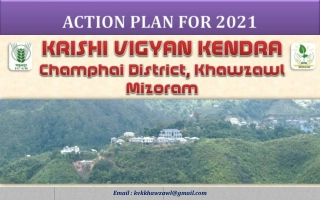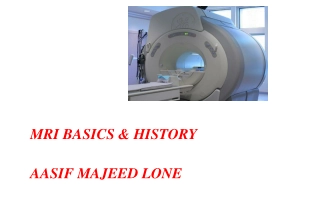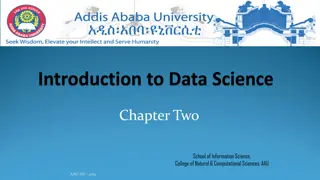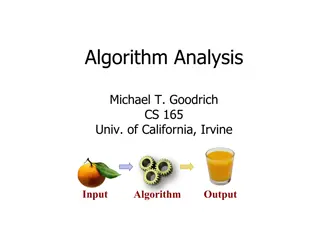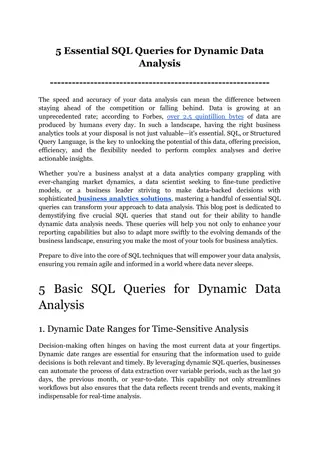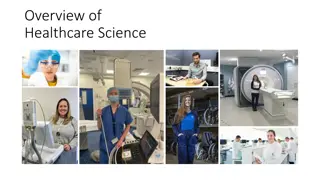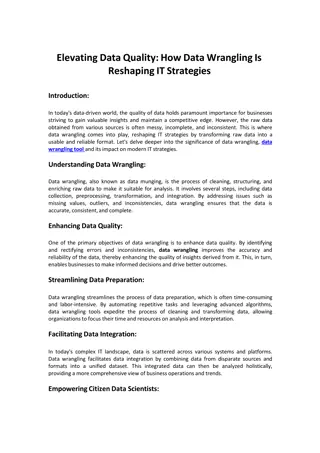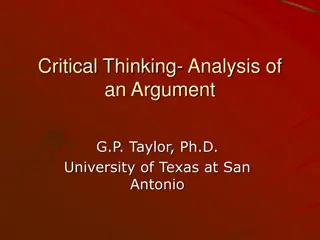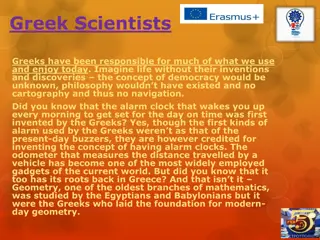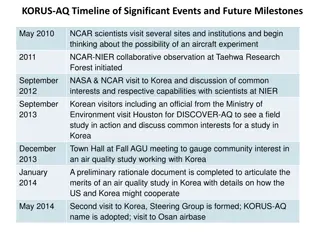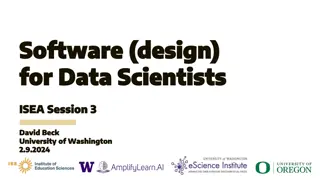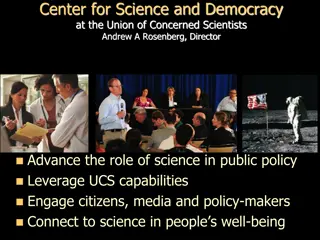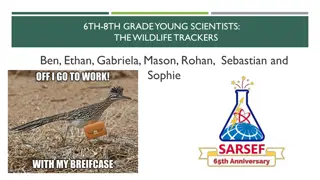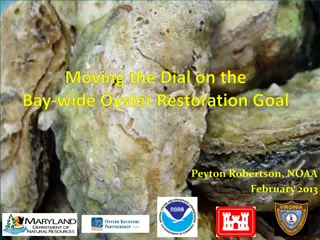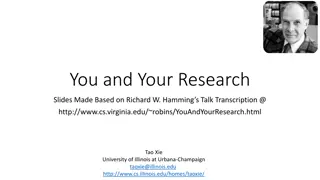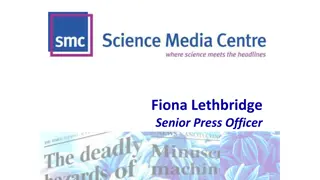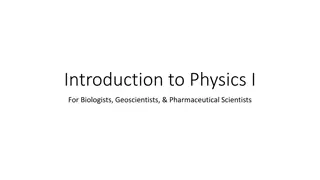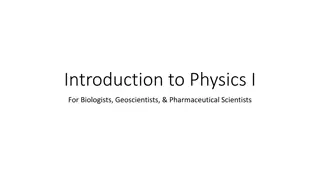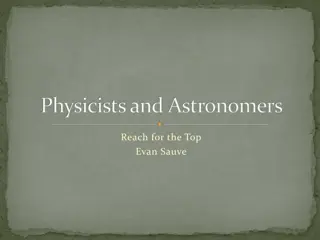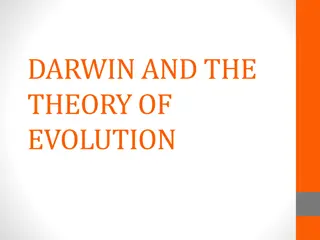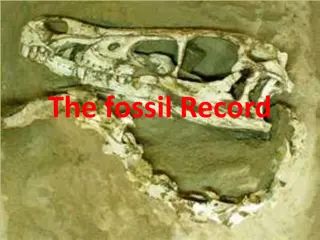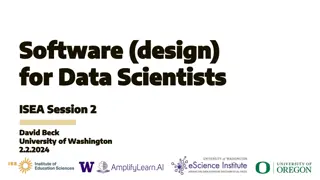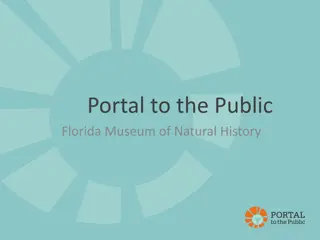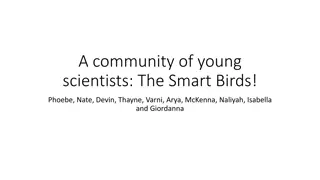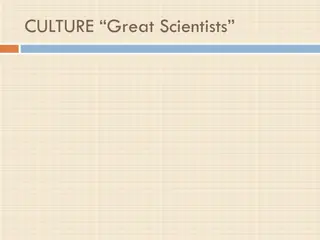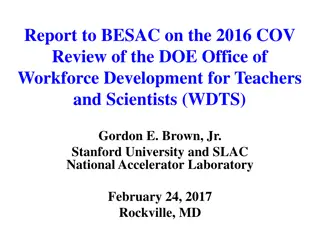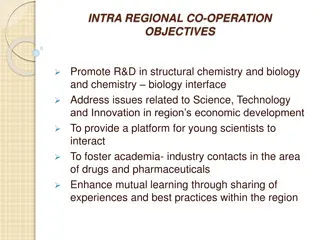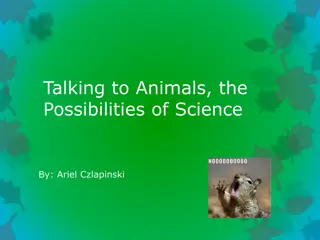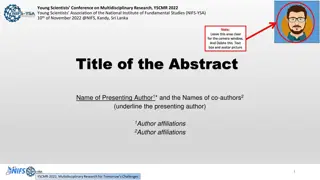Transcriptomics-based ML Analysis Predicts Space-Exposed Murine Livers
Transcriptomics-based machine learning (ML) analysis to predict the effects of space exposure on murine livers. The study involves a cross-disciplinary team of scientists from SAIC, NASA Langley Research Center, Scimentis LLC, University of North Carolina-Chapel Hill, University of Houston, AROSE, a
0 views • 25 slides
Virtual Dialogue on the 2023 Global Sustainable Development Report (GSDR)
Independent Group of Scientists (IGS) and Private Sector Representatives in a virtual dialogue on the 2023 GSDR. Explore the preliminary findings and recommendations of the report, engage in a moderated discussion, and participate in Q&A sessions. Don't miss this opportunity to contribute to sustain
3 views • 31 slides
AI-Based Solution Proposal for PoC Project
This proposal outlines a project aimed at developing an AI-based solution to address a specific problem statement. The team, consisting of researchers and scientists, plans to deliver a deployable prototype technology with quantifiable outcomes within six months. The project aims to improve upon exi
3 views • 15 slides
Revolutionizing Brain Health Monitoring and Intervention with AI
Willow Health presents an innovative AI companion, Willow, designed for personalized brain health monitoring and intervention. Their team, comprising students, scientists, doctors, and entrepreneurs, is dedicated to advancing brain health through continuous monitoring and improvement using digital a
3 views • 17 slides
Elementary Scientists and Inventors Escape Room
Explore the world of scientists and inventors through an engaging escape room activity. Dive into the lives of individuals like Elizabeth Blackwell, Ada Lovelace, and Isaac Newton by completing interactive tasks that challenge your knowledge and problem-solving skills. Uncover codes, match inventors
0 views • 24 slides
Join the PSI Data Science SIG for Advancing Data Science in the Pharmaceutical Industry
The PSI Data Science SIG, established in 2017, comprises a group of Data Scientists and Statisticians focusing on various topics like Genomics, Machine Learning, and more. They aim to collaborate on data science in drug development, engage with regulatory bodies, and explore new data analysis method
7 views • 5 slides
Staff and Trials Overview at KVK Champhai, Mizoram
KVK Champhai, Mizoram, has a diverse staff including scientists and support staff. They conduct on-farm trials in disciplines like agronomy, horticulture, and plant protection. Trials aim to refine and assess technologies for crops like maize, beans, soybean, and more under various conditions. Speci
2 views • 49 slides
MRI BASICS & HISTORY AASIF MAJEED LONE
Magnetic Resonance Imaging (MRI) has revolutionized medical imaging, offering detailed views of the body without harmful radiation. This article delves into the historical development of MRI, highlighting key milestones such as the discoveries of the Rotating Magnetic Field by Nikola Tesla and the w
9 views • 49 slides
Global Climate Models
Scientists simulate the climate system and project future scenarios by observing, measuring, and applying knowledge to computer models. These models represent Earth's surface and atmosphere using mathematical equations, which are converted to computer code. Supercomputers solve these equations to pr
3 views • 15 slides
Innovative Approach to Managing Environmental Challenges in River Catchments
A project led by John Bryden at Oxford University focuses on community modelling for rivers, enabling local people to use tools typically reserved for scientists. The initiative addresses issues faced by rivers through the INCA model, constructed wetlands, and community engagement. By creating wetla
9 views • 12 slides
Unraveling the Big Bang Theory and the Origins of the Universe
Explanation of the Big Bang Theory by Matthew Kogan, detailing the formation of the universe from a hot, dense mass expanding outward. As the universe cooled, particles formed, leading to the creation of stars and galaxies. The theory explores the imbalance between matter and antimatter, the intense
5 views • 12 slides
Overview of Data Science: Uncovering Insights from Data
Data science is a multi-disciplinary field that utilizes scientific methods to extract knowledge from various types of data. Data scientists play a crucial role in uncovering valuable insights for organizations by mastering the full data science life cycle and possessing key skills such as curiosity
6 views • 46 slides
Algorithm Analysis and Scalability in Computer Science
Scientists and computer scientists often encounter scale differences, and scalability is crucial for accommodating growing inputs. Algorithm analysis, data structures, running times, and experimental studies are key aspects explored in the context of algorithms. Choosing the right type of plot for l
4 views • 17 slides
Comprehensive Guide to End Point Assessment (EPA) for Apprenticeship
This detailed guide provides an overview of the End Point Assessment (EPA) process for apprenticeships, including timelines, requirements, and key steps such as project presentation, vocational competence discussion, and scenario evaluation. It covers aspects like completing the apprenticeship, Gate
4 views • 30 slides
5 Essential SQL Queries for Dynamic Data Analysis
Explore the transformative power of SQL with our latest guide, which highlights five critical SQL queries essential for dynamic data analysis. This post covers how these queries can be utilized by business analytics tools to enable data analysts, scientists, and BI professionals to extract actionabl
6 views • 8 slides
Insights into Healthcare Science Careers and Specializations
Explore the diverse field of healthcare science through roles like biomedical scientists, clinical scientists, and support workers. Learn about the wide-ranging duties and specializations within the healthcare science sector, including laboratory research, equipment development, and patient care. Di
1 views • 17 slides
How Data Wrangling Is Reshaping IT Strategies in Deep
Data wrangling tool like Ask On Data plays a pivotal role in reshaping IT strategies by elevating data quality, streamlining data preparation, facilitating data integration, empowering citizen data scientists, and driving innovation and agility. As businesses continue to harness the power of data to
2 views • 2 slides
Enhancing Critical Thinking Skills in Scientific Research
Critical thinking plays a pivotal role in scientific endeavors, enabling researchers to observe, hypothesize, experiment, and draw valid conclusions. Being a natural skeptic is crucial for scientists to scrutinize research papers effectively. By carefully analyzing prior findings, research technique
2 views • 20 slides
Contributions of Greek Scientists to Modern Society
Greeks have made significant contributions to modern society through their inventions and discoveries. Without their innovations, concepts like democracy, philosophy, cartography, and navigation would be unknown. Greek scientists like Thales of Miletus, Aristotle, and Pythagoras laid the foundation
0 views • 14 slides
KORUS-AQ Timeline of Significant Events and Future Milestones
NCAR scientists explore the possibility of an aircraft experiment in Korea leading to the formation of KORUS-AQ. Collaborative efforts, meetings, and preparations are made over several years, culminating in the finalization of the International Agreement and deployment plans. The timeline showcases
0 views • 14 slides
Software Design Principles for Data Scientists
Explore the importance of clear design in software development for data scientists, learning from past failures like the Therac-25 incident. Dive into creating understandable designs, user stories, and the significance of simplicity and careful feature selection. Follow a practical example in design
0 views • 88 slides
Advancing Science in Public Policy: The Role of the Union of Concerned Scientists
The Center for Science and Democracy at the Union of Concerned Scientists, led by Director Andrew A. Rosenberg, aims to promote the role of science in public policy by leveraging UCS capabilities and engaging citizens, media, and policymakers. Strengthening the voice for science through the UCS Scie
0 views • 5 slides
Young Scientists Investigate Wildlife Behavior and Habitat Effects
The Wildlife Trackers, a group of young scientists, conducted a study to understand how the presence of people and different habitats affect the behavior and flight responses of animals in their neighborhood. By measuring flight response distances of various animals like birds, lizards, and rabbits,
0 views • 11 slides
Oyster Restoration Efforts in Chesapeake Bay
Efforts are underway to restore oyster populations in Chesapeake Bay tributaries by 2025. Various workgroups, stakeholders, and scientists are collaborating to define restoration goals, develop tributary plans, conduct population surveys, and manage the restoration process. The Harris Creek tributar
0 views • 17 slides
Characteristics of Great Scientists: Insights from Richard W. Hamming's Talk
Explore the essential characteristics of great scientists as outlined by Richard W. Hamming. Delve into the role of luck, courage, age, and working conditions in shaping scientific success. Gain valuable perspectives on the mindset and approach necessary for making impactful contributions in the fie
0 views • 37 slides
Discover Faculty Opinions: A Platform for Scientific Insights
Faculty Opinions, powered by F1000 Prime, is a platform where over 8,000 leading life scientists nominate and review important research articles. With personalized alerts and expert commentary, scientists can stay updated on groundbreaking discoveries without sifting through vast amounts of literatu
0 views • 25 slides
Celebrating Efforts of Scientists, Statisticians, and Journalists: Promoting Access to Best Science and Engaging the Experts
There is much to appreciate in the collaborative efforts of scientists, statisticians, and journalists in ensuring accurate and relevant information reaches the public. With the rising politicization of science, it is crucial to maintain access to the best scientific knowledge for journalists and en
0 views • 8 slides
Introduction to Physics I for Biologists, Geoscientists, & Pharmaceutical Scientists
Delve into the fundamental concepts of physics tailored for biologists, geoscientists, and pharmaceutical scientists. Explore key principles and applications in a concise and engaging manner, enhancing your understanding of the physical world around us.
0 views • 4 slides
Physics Course for Biologists, Geoscientists, and Pharmaceutical Scientists
This physics course tailored for biologists, geoscientists, and pharmaceutical scientists covers lectures, exercises, and exams in both English and German. The course includes weekly exercise sessions, recommended literature, exam details, and study materials available on the course website. Student
0 views • 15 slides
Influential Scientists in History: Newton, Hawking, Einstein, and Kepler
Explore the remarkable contributions of influential scientists from different eras - Sir Isaac Newton, Stephen Hawking, Albert Einstein, and Johannes Kepler. Learn about Newton's laws of motion, Einstein's theory of relativity, Hawking's work on black holes, and Kepler's laws of planetary motion.
0 views • 10 slides
Darwin and the Theory of Evolution: A Comprehensive Overview
Darwin's Theory of Evolution encompasses the concepts of organisms changing over time and life evolving through natural selection. Influenced by scientists such as James Hutton, Jean Baptiste Lamarck, and Alfred Russel Wallace, Darwin's theory culminates in the idea of evolution by natural selection
0 views • 9 slides
Fossils: Formation, Types, and Significance
Explore the world of fossils and learn about their formation process, different types such as mold, cast, and petrified fossils, and the valuable insights they provide to scientists. Discover how fossils capture the remains of ancient plants and animals, revealing clues about the past through their
0 views • 25 slides
The Importance of Software Design for Data Scientists
Today's ISEA Session 2 with David Beck from the University of Washington delves into the critical role of intentional software design for data scientists. The session covers the software design approach, user-centric design stories, use cases, components, testing strategies, and the benefits and dra
1 views • 76 slides
Exploring the Portal to the Public at the Florida Museum of Natural History
The Portal to the Public program at the Florida Museum of Natural History aims to bridge the gap between scientists and the public through interactive sessions. The program focuses on informal science education, STEM learning, and science communication workshops for scientists. Funded by the Nationa
0 views • 15 slides
Insights from Young Scientists on How Temperature Affects Bird Behavior
A group of young scientists known as the Smart Birds conducted a study on how temperature influences bird behavior. Through observations recorded in the morning and late afternoon, they found that birds were most active when the temperature ranged between 71-90 degrees Fahrenheit. The study revealed
0 views • 14 slides
Great Scientists Who Shaped Our World
Discover the remarkable contributions of renowned scientists like Galileo, Louis Pasteur, Karl Landsteiner, Francis Crick, James Watson, and Jane Goodall. From revolutionizing astronomy to groundbreaking discoveries in microbiology and genetics, these brilliant minds have left a lasting impact on me
0 views • 8 slides
Review of DOE Office of Workforce Development for Scientists
Assessment of the 2016 review of the Department of Energy's Office of Workforce Development for Teachers and Scientists (WDTS) including its mission, programs reviewed, charges, and additional considerations to enhance workforce development in STEM fields.
0 views • 25 slides
Strategies for Enhancing Scientific Collaboration in South Asia
This content highlights the objectives of intra-regional co-operation to promote R&D in structural chemistry and biology, address science, technology, and innovation issues, create platforms for young scientists, foster academia-industry contacts in pharmaceuticals, and share best practices within t
0 views • 4 slides
Could Humans Really Talk to Animals? Exploring the Potential Through Science
Discover the fascinating world of communication between humans and animals as scientists delve into the possibility of translating thoughts and ideas across species boundaries. From Nim Chimpsky to Alex the African grey parrot, examples show how intelligent creatures can learn to communicate through
0 views • 5 slides
Young Scientists Conference on Multidisciplinary Research 2022
The Young Scientists Conference on Multidisciplinary Research 2022, organized by the Young Scientists Association of the National Institute of Fundamental Studies, is set to take place on the 10th of November 2022 at NIFS in Kandy, Sri Lanka. The conference will focus on addressing tomorrow's challe
0 views • 4 slides






